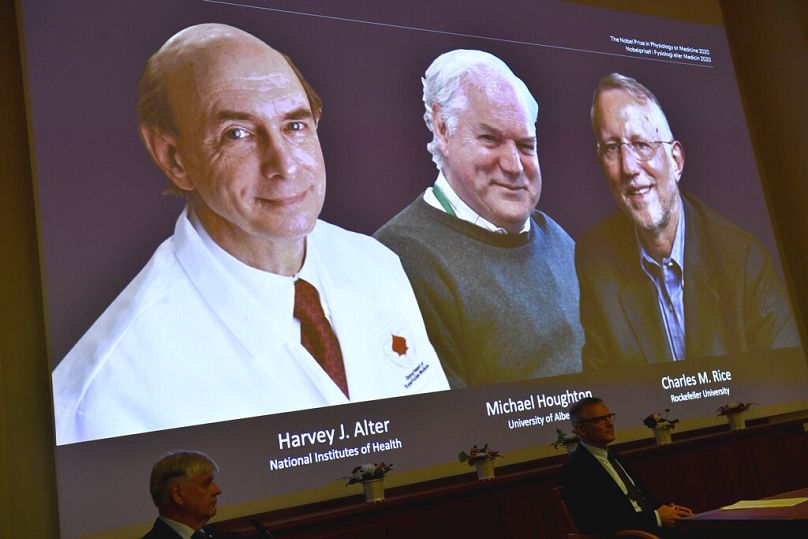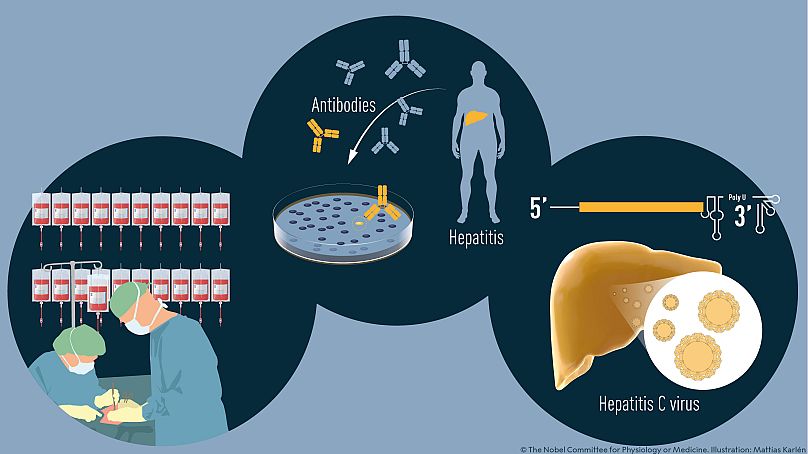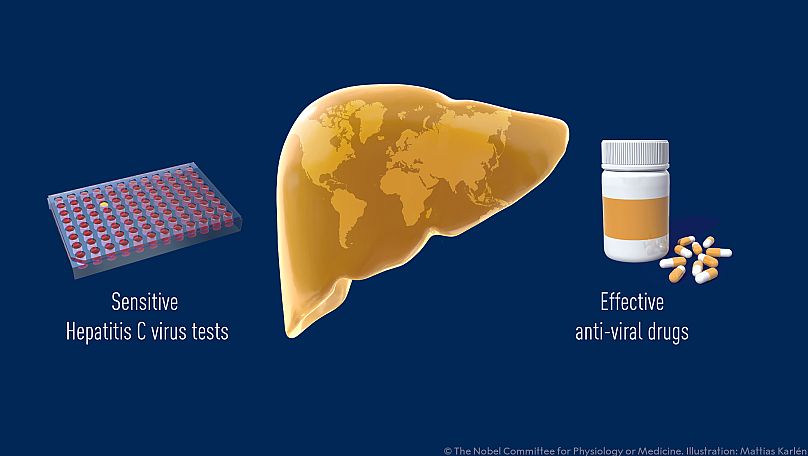This year's prize comes at a particularly significant time for those working in the medical field, given the additional spotlight brought by COVID-19.
The 2020 Nobel Prize in Medicine or Physiology has been jointly awarded to the three scientists who discovered the Hepatitis C virus.
Americans Harvey J Alter and Charles M Rice, and British-born Michael Houghton were revealed on Monday as this year's laureates for the medical breakthrough touted as saving millions of lives.
In a statement, the Nobel Assembly said the isolation of Hepatitis C had marked a "landmark achievement in the ongoing battle against viral diseases" and had resulted in the creation of specific testing regimen and cures to tackle the illness around the world.
Born in 1935 in New York, Alter carried out his prize winning studies at the US National Institutes of Health in Bethesda, where he remains active.
Rice, meanwhile, was born in 1952 in Sacramento, California, later working at the Washington University in St Louis before moving to Rockefeller University in New York.
Michael Houghton was born in the UK in 1950, and undertook his studies at the Chiron Corporation in California before moving to the University of Alberta in Canada.
This year's prize comes at a particularly significant time for those working in the medical field, given the additional spotlight brought by coronavirus.
But despite the pandemic's huge effect on the world and its highlighting of the importance of science and medical research, the 2020 winner was not expected to be COVID-related.
This is due to winners usually being picked from discoveries made years ago, and whom provided the basis of practical applications commonly used today.
The discovery of Hepatitis C in the late 1980s came as scientists grew increasingly concerned that tests for the Hepatitis B virus accounted for only a minority of the hepatitis cases resulting from blood transfusion.
Hepatitis A, meanwhile, is not a blood-borne illness and can be spread through close personal contact.
To isolate the unknown infectious agent, Alter was able to demonstrate that an as-yet-unknown virus was the cause of chronic hepatitis, while Houghton used an untested strategy to isolate the genome later called Hepatitis C.
Charles Rice completed the discovery by gathering evidence to prove Hepatitis C alone could cause chronic hepatitis.
The bodily effect of Hepatitis C is devastating when left untreated, and can ultimately be life-threatening.
Primarily attacking the liver, the virus can lead to serious scarring, known as cirrhosis, or cause deadly liver failure and cancer.
Alter, Houghton and Rice are now set to receive a gold medal for their Nobel award, along with prize money of 10 million Swedish kronor (€956,000) from a bequest left by Swedish inventor Alfred Novel 124 years ago.
This amount was recently increased to adjust for inflation.
Announcing the recipients, Thomas Perlmann, the Secretary-General of the Nobel Committee said he had managed to reach Alter and Rice by phone to inform them of the news.
He said: "I had to call a couple of times before they answered. They seemed very surprised and very, very happy."














